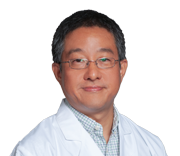Liver cancer is on the rise in Texas — already double the national average — and is the only cancer in the U.S. with an increasing death rate. A specialist in the development of liver cancer, who hopes to better predict who will get liver cancer and improve the odds of survival for those who do, has joined the faculty at The University of Texas Southwestern Medical Center.
Dr. Yujin Hoshida, a physician-scientist, was recruited in 2018 from Icahn School of Medicine at Mount Sinai with the help of a Recruitment of Rising Stars Award from CPRIT. He directs the Liver Tumor Translational Research Program at UT Southwestern.
Read More
Liver cancer is on the rise in Texas — already double the national average — and is the only cancer in the U.S. with an increasing death rate. A specialist in the development of liver cancer, who hopes to better predict who will get liver cancer and improve the odds of survival for those who do, has joined the faculty at The University of Texas Southwestern Medical Center.
Dr. Yujin Hoshida, a physician-scientist, was recruited in 2018 from Icahn School of Medicine at Mount Sinai with the help of a Recruitment of Rising Stars Award from CPRIT. He directs the Liver Tumor Translational Research Program at UT Southwestern.
Many people who suffer from liver disease, like fatty liver or hepatitis infection, eventually develop liver cancer, but who among those is most at risk of developing cancer is not completely understood. Dr. Hoshida hopes to develop personalized cancer screening to identify genomic and molecular factors that portend which patients with non-cancerous liver disease are at higher risk for developing liver cancer.
Typically, once liver cancer produces symptoms, it’s usually too far advanced for successful treatment. With screening and monitoring of high-risk patients, Dr. Hoshida hopes that more cancers will be identified early enough that people will be able to improve their chances of surviving the disease through curative surgery.
“We hope to be able to identify, for example, among those with fatty liver disease, the subset of people who really have a high risk of cancer,” Dr. Hoshida says. “Our goal is to tell those patients who are especially high risk to come to the hospital to have regular monitoring for cancer development.”
His research has shown that people of certain ethnicities are more prone to develop cancer in certain contexts, he says, such as Hispanic people who suffer from fatty liver disease. “They have their own specific molecular abnormality driving cancer risk,” he says, as do both African-Americans and white Baby-Boomers who suffer from hepatitis C infection.
The goal is to develop a blood test that could easily be deployed in clinical settings not just at major medical centers but in community clinics as well.
Dr. Hoshida is also trying to develop medications that can help prevent cancer from developing in high-risk patients in the first place. “We are exploring already-existing medications plus identifying and developing new drugs, as well,” he says.
Unfortunately, Texas is at the forefront of increasing incidence and death from liver cancer, but Dr. Hoshida says that is part of what drew him to the state and to UT Southwestern. “There has been a very strong clinical care team developed here, and I really see an opportunity to translate what we develop in the lab directly to patient care in a way that will really have an impact,” he says.
CPRIT support is crucial for conducting more comprehensive and advanced analysis of cancer specimens, which will advance his capability to develop a diagnostic test and cancer-preventive medicine that can be directly used for patients. “This is a very unique opportunity to make a real impact on the care of liver cancer patients,” he says.
Dr. Hoshida received his M.D. degree from Tsukuba University School of Medicine in Japan, and completed his Ph.D. in medical sciences at the University of Tokyo. He was a postdoctoral fellow in cancer genomics and systems biology at the University of Tokyo and at the Broad Institute (Harvard and MIT) before joining the faculty at the Icahn School of Medicine in 2012.
Read Less

